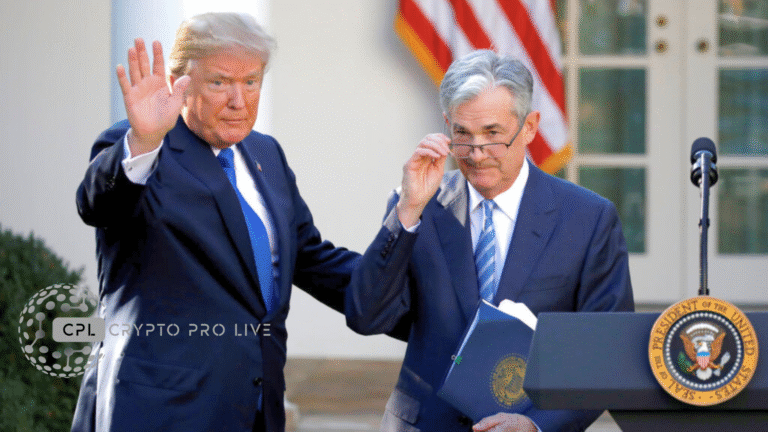The Great Bitcoin Race: CZ’s Prophecy of National Adoption Collides with Geopolitical Reality
Changpeng Zhao (CZ), one of the most influential figures in the cryptocurrency world, has long held a powerful and provocative vision for the future of Bitcoin. His famous assertion—that we are witnessing “a race towards countries adopting Bitcoin”—is a bold prophecy that frames the geopolitical and economic stakes of the digital asset revolution. On the surface, the idea of nations rushing to embrace Bitcoin as a strategic asset or even legal tender sounds like a victory lap for decentralization. Yet, as we move through 2025, the reality of this “race” is proving to be far more nuanced and complex than a simple sprint to the finish line.
The journey of the first nations to adopt Bitcoin has revealed significant challenges, forcing a re-evaluation of what national Bitcoin adoption truly means. From the highly publicized experiment in El Salvador to the strategic maneuvering of global financial hubs like Dubai and Switzerland, the landscape of national crypto integration is evolving from a simple declaration to a sophisticated, multi-faceted competition for economic and technological leadership.
The Case for Adoption: Why the Race Began
CZ’s vision for a “race” toward Bitcoin adoption is rooted in a fundamental critique of the traditional financial system. He and other Bitcoin proponents argue that governments, through practices like quantitative easing, can devalue their national currencies, effectively making their citizens poorer. Bitcoin, with its mathematically-guaranteed, capped supply of 21 million coins, offers a powerful alternative: a hard asset that is immune to political manipulation and inflationary pressures.
For developing nations, in particular, adopting Bitcoin was initially framed as a path to true monetary sovereignty. Countries like El Salvador, heavily reliant on the US dollar and global remittance flows, saw Bitcoin as a tool to gain financial independence, reduce remittance fees, and provide financial services to their unbanked populations. The narrative was compelling: by embracing a decentralized asset, a nation could escape the control of the global financial elite and forge a new economic path. This was the “why” that fueled the initial sparks of the race CZ envisioned.
El Salvador’s U-Turn: A Collision with Geopolitical Forces
El Salvador, the pioneering nation to make Bitcoin legal tender in 2021, was the poster child for this movement. However, as of mid-2025, its story serves as a crucial case study in the immense pressures that come with national crypto adoption. In a startling recent update, a report from the International Monetary Fund (IMF) revealed that El Salvador was effectively forced to roll back its Bitcoin policies as a condition for securing a critical $1.4 billion loan.
The fallout was significant:
The government reportedly agreed to halt further purchases of Bitcoin with public funds.
Reports from early 2025 indicate that El Salvador has even stripped Bitcoin of its legal tender status, a complete reversal of its groundbreaking 2021 law.
A bombshell revelation from a July 2025 IMF report confirmed that the government had not purchased any new Bitcoin in 2025, despite public trackers suggesting otherwise. The government had instead been consolidating multi-government wallets, creating the illusion of ongoing accumulation.
El Salvador’s experience highlights the power of global financial institutions and the diplomatic tightrope that nations must walk. While the country’s president initially championed a vision of total financial autonomy, the reality of sovereign debt and international lending proved to be a formidable headwind. The “race” for legal tender adoption, at least in the manner of El Salvador’s initial bold step, has been shown to be fraught with political and economic risk.
A New Kind of Race: The Rise of Crypto-Friendly Jurisdictions
While the legal tender model faces challenges, a more subtle and powerful form of Bitcoin adoption is taking hold in other parts of the world. This is not a race to declare Bitcoin as official currency, but a competition to create the most favorable regulatory and economic environments for the crypto industry.
The United Arab Emirates (UAE): The UAE, with Dubai at its core, is a prime example. The nation is not adopting Bitcoin as legal tender but is instead racing to become a global hub for crypto
Disclaimer: All content published by Crypto Pro Live (CPL) is intended solely for informational and educational purposes. It does not constitute financial, investment, or legal advice. While we strive for accuracy and reliability, CPL assumes no responsibility for any financial decisions, losses, or actions taken based on the information provided. Readers are encouraged to conduct thorough research and seek professional guidance before making investment choices.



















